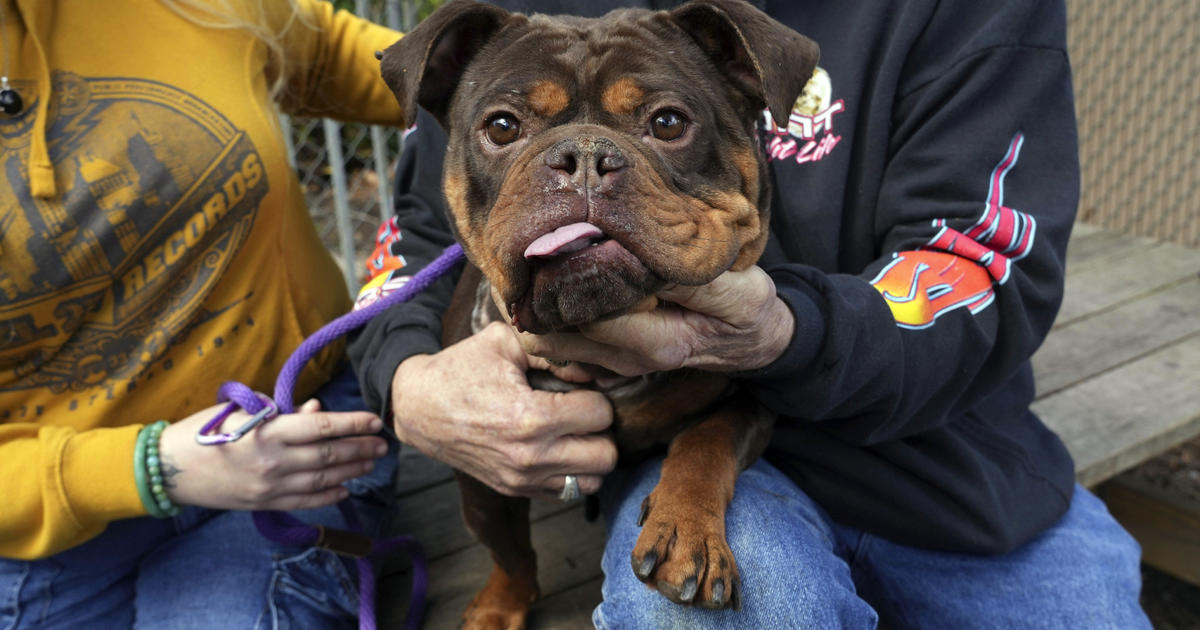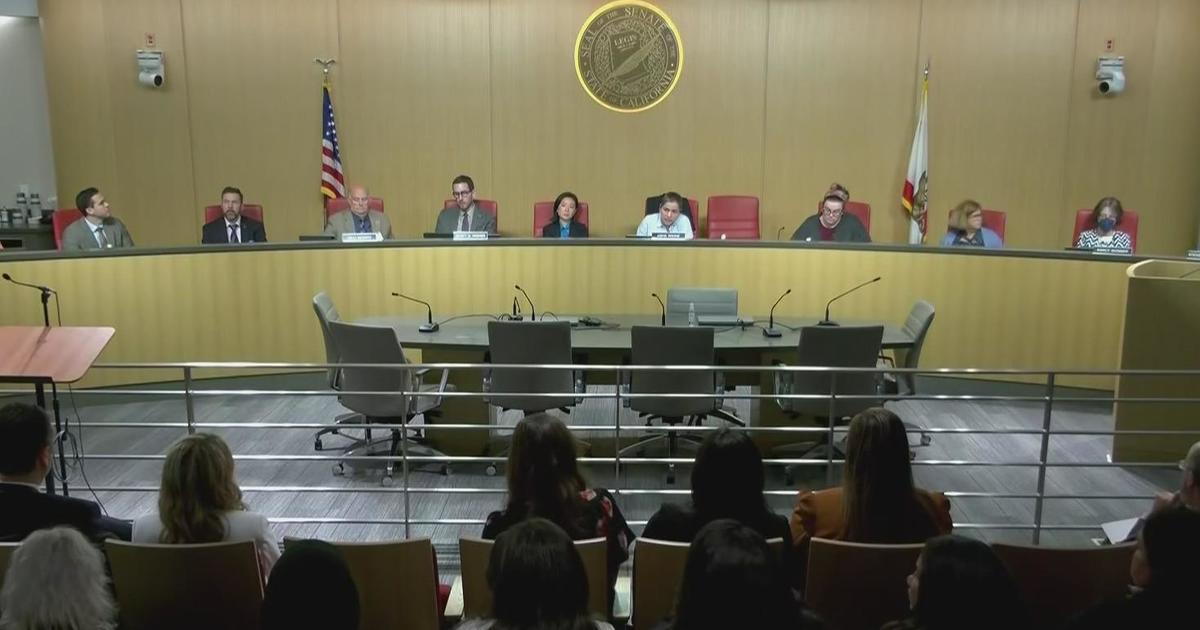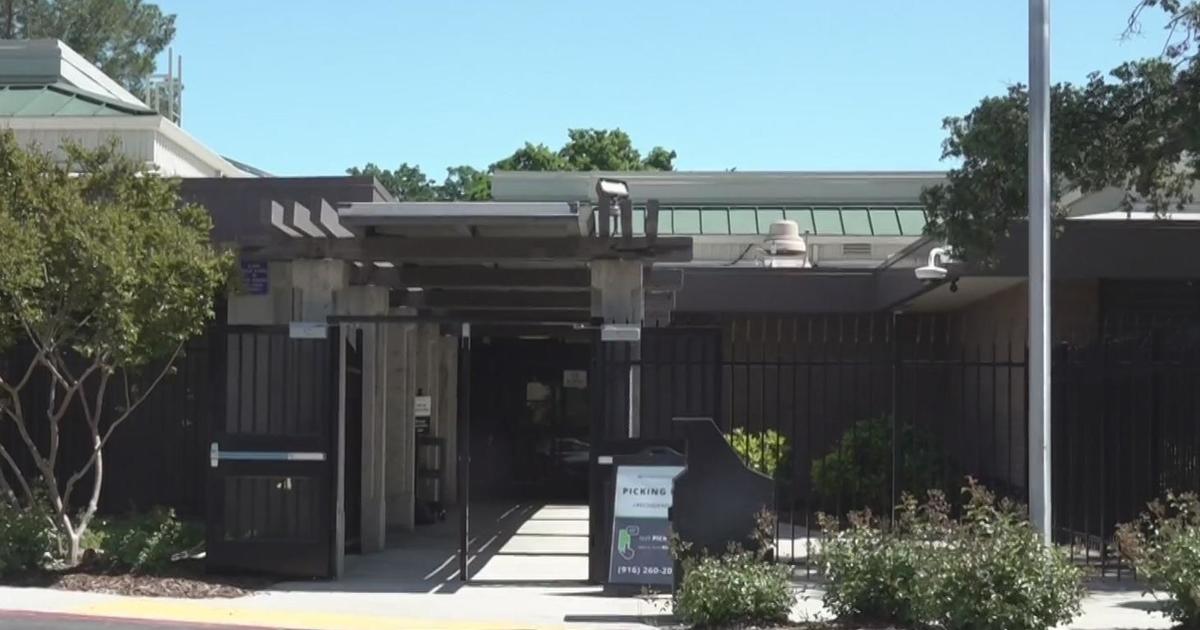California Open Primary To Face First Test
SACRAMENTO, Calif. (AP) -- Voters upset with partisan gridlock in the nation's most populous state decided last year to try a new way of electing lawmakers -- an open primary system in which only the top two vote-getters advance, even if they are from the same political party.
The new process gets its first test Tuesday with special elections in two Southern California state Senate districts.
It is the first of two voter-approved remedies for a system in which most lawmakers are chosen from safe Democratic or Republican districts. California voters also have removed redistricting authority from state lawmakers, instead establishing an independent citizens commission to draw legislative and congressional boundaries.
Both reforms are designed to help moderate politicians win election, theoretically reducing political polarization.
The old system favored highly conservative, small-government Republicans and liberal, union-backed Democrats who generally vote the party line in Sacramento and are poles apart on almost every issue, ensuring that most attempts at consensus quickly run aground. As an example of how entrenched the parties have become, just one seat changed party hands out of 100 state legislative contests last November.
Political strategists say candidates will have to appeal to a broader constituency now that Republicans, Democrats, independents and members of minor parties are all choosing from the same list of candidates.
"If you have two Democrats, I can tell you which one is going to win -- the one who can reach Republicans, the one who can reach decline-to-state, the one who can reach everybody," said former California lieutenant governor Abel Maldonado, a Republican. "You're going to have to be fair and pragmatic or you're going to lose."
As a state senator in 2009, Maldonado insisted that lawmakers put Proposition 14 on the ballot before he would vote to raise $13 billion in temporary tax increases. The measure, which had financial backing from former Republican Gov. Arnold Schwarzenegger, won with 54 percent voter support in last June's primary.
The new rules are having the desired effect in Los Angeles County's 28th Senate District special election to replace Democratic Sen. Jenny Oropeza of Long Beach, who died in office last year of complications from a blood clot.
Former Assemblyman Ted Lieu, D-Torrance, is the front-runner. He faces not only another Democrat, but also four Republicans and two candidates who declared no party preference. Lieu previously represented more than half the Senate district's voters in the Assembly.
Lieu, who lost a Democratic primary bid for state attorney general last year, sent political mailers to likely voters regardless of their political affiliation and hosted a telephone "town hall" aimed at registered Republicans.
The top two candidates will head to a runoff election if no one receives more than 50 percent of the vote.
Former Democratic consultant Darry Sragow said the primary is likely to leave 28th Senate District voters with a choice between two Democrats in the special general election, scheduled for April 19. That's because 48 percent of the district's voters are Democrats, 25 percent Republicans and 20 percent decline-to-state, said Sragow, who teaches politics at the University of Southern California. He also co-edits the California Target Book, which analyzes legislative and congressional campaigns.
Harvey Hukari is trying to make sure a Republican is in that mix.
Hukari is the political consultant for Republican Bob Valentine, an attorney from Manhattan Beach and the only candidate besides Lieu who is spending significant money on the race.
Valentine spent nearly $55,000 through January, compared to more than $228,000 by Lieu. But it was enough for Valentine to mail fliers targeted to likely Republican voters, and to Democrats who live in households where someone else is registered Republican.
The new system will make campaigns more expensive, analysts said, because candidates will have to reach voters of all persuasions and potentially spend a lot of money in both primary and general election campaigns. Safe incumbents typically face little if any primary challenge now.
"Now all voters matter. You're not just playing to your primary base," said Republican strategist Kevin Spillane, who is not involved in either race. "The thought is it will create Republicans and Democrats who are less ideological because they have to attract a broader coalition to gain office."
The system will gets its first test in a congressional race later this year when a special election is held to replace Rep. Jane Harman in a Los Angeles-area district. The eight-term Democrat will resign her seat by the end of the month to lead a nonpartisan think tank.
California's top-two system is modeled after Washington state's open primary, adopted in 2008. It will not affect next year's presidential primary but will govern all other state and federal primaries.
Six plaintiffs affiliated with the Democratic and Libertarian parties, as well as two groups calling themselves the Reform Party and Socialist Action, sued over two provisions of the California law. The two political groups are not recognized by the secretary of state's office because they have not met the minimum requirements for an organized political party.
The plaintiffs argue that it is unconstitutional for the state to discard write-in votes in the general election, although write-ins will be counted in primaries. They also contend it is unfair to prohibit candidates with unofficial political groups from listing their affiliations on the ballot.
While Republican, Democrat, American Independent, Green, Libertarian, and Peace and Freedom party members can list their affiliations because they are recognized by the state, other candidates must register as having "no party preference."
"That is fundamentally unconstitutional and just plain wrong," said Gautam Dutta, an attorney from Fremont who is representing the plaintiffs. "No candidate should be muzzled."
A San Francisco Superior Court judge ruled against the lawsuit in September.
No minor-party or independent candidates are on the ballot in Tuesday's other special primary, in a sprawling district north of Los Angeles County.
A Republican and a Democrat are the only ones trying to succeed Republican state Sen. George Runner in Senate District 17, where Republicans hold a voter registration edge of just 2 percentage points. He resigned after he was elected to the state Board of Equalization last November.
Runner's wife, former Republican state Assemblywoman Sharon Runner, is seeking to replace him. She faces Democrat Darren Parker, a small-business owner who, like the Runners, lives in Lancaster. The district includes parts of Kern, Los Angeles, San Bernardino and Ventura counties.
If the 17th and 28th districts remain with their current party, the political dynamics of the Senate will be unchanged. Democrats hold a 24-14 advantage over Republicans in the Senate with the two seats unfilled, but need 27 votes for the two-thirds majority required to pass tax or fee increases.
That's likely the way it eventually will play out because the Legislature drew legislative and congressional districts a decade ago to protect the parties' respective alignments, said Larry Gerston, a San Jose State University political science professor. Real change will not come until the independent citizens commission redraws legislative and congressional district boundaries in time for the 2012 elections.
"This is just the first of two shoes to drop," Gerston said of the open primary system.
(Copyright 2011 by The Associated Press. All Rights Reserved.)



